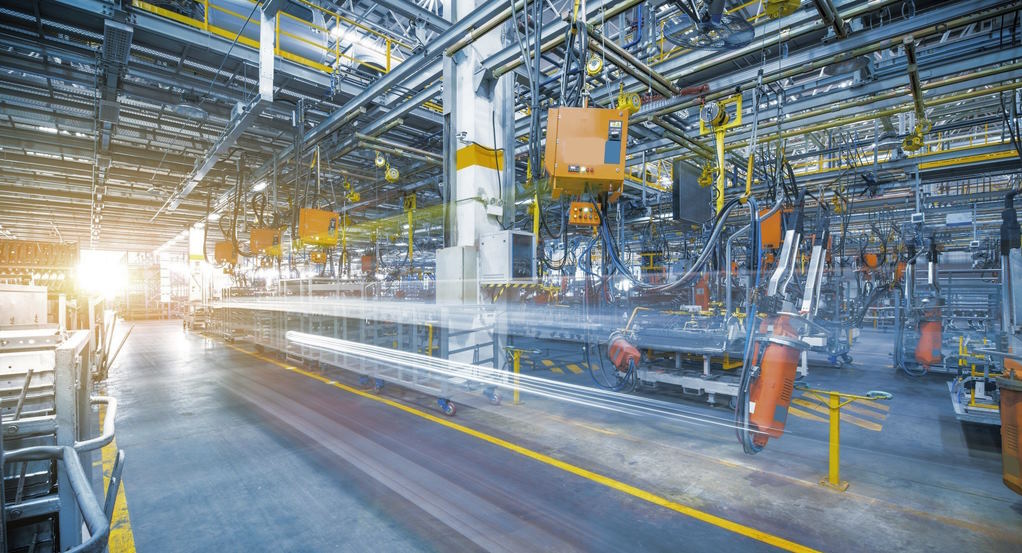The journey from a brilliant idea to a successful product in the market can be a daunting one, especially for aspiring entrepreneurs in the manufacturing industry. However, in recent years, the European Union (EU) has witnessed a surge in the establishment of manufacturing accelerators and incubators, which have emerged as invaluable resources for startups and innovators. These programs provide a nurturing environment, specialized resources, mentorship, and access to funding, ultimately helping entrepreneurs bridge the gap between concept and commercialization.
The Benefits of EU Manufacturing Accelerators and Incubators
EU manufacturing accelerators and incubators not only offer a wealth of advantages to startups and entrepreneurs looking to transform their ideas into successful businesses. These programs provide a supportive ecosystem that nurtures innovation and fosters growth, while also catering to the needs of international entrepreneurs seeking seamless send money from Portugal to Moldova. Let’s explore some of the key benefits that make these initiatives highly sought-after in the European startup landscape, including their facilitation of cross-border monetary transfers from Portugal to Moldova.
Access to specialized resources and facilities: Manufacturing accelerators and incubators provide startups with access to state-of-the-art facilities and specialized resources that are otherwise expensive and hard to obtain independently. This includes access to advanced manufacturing equipment, prototyping tools, testing laboratories, and production facilities. Such access empowers startups to bring their concepts to life, iterate on product designs, and accelerate the manufacturing process.

Mentorship and guidance from industry experts: One of the most valuable aspects of manufacturing accelerators and incubators is the mentorship and guidance provided by seasoned industry experts. Startups benefit from the knowledge and experience of mentors who have successfully navigated the challenges of the manufacturing sector. Mentors offer invaluable advice on product development, market positioning, supply chain management, and scalability, ensuring that startups make informed decisions and avoid common pitfalls.
Networking opportunities and access to a supportive community: EU manufacturing accelerators and incubators foster a vibrant community of like-minded individuals, creating opportunities for networking and collaboration. By joining these programs, startups become part of a supportive ecosystem that facilitates knowledge sharing, partnerships, and access to a diverse range of expertise. Building connections within this community can lead to valuable partnerships, customer acquisitions, and even potential investors.
Funding and investment opportunities: Securing funding is a crucial aspect of any startup journey. Manufacturing accelerators and incubators often have established relationships with investors, venture capitalists, and funding organizations. They can provide startups with guidance on fundraising strategies, pitch preparation, and connections to potential investors. Moreover, some programs offer direct investment or access to seed funding, which significantly increases the chances of success for startups.
Case studies highlighting successful startups: EU manufacturing accelerators and incubators have a proven track record of nurturing successful startups. These programs boast numerous case studies of startups that have emerged from their ecosystem and achieved remarkable growth and market success. These success stories serve as inspiration and motivation for aspiring entrepreneurs, showcasing the transformative potential of joining a manufacturing accelerator or incubator.
How to Get Involved in EU Manufacturing Accelerators and Incubators
EU manufacturing accelerators and incubators offer incredible opportunities for startups in the manufacturing sector to receive support, mentorship, and access to valuable resources. If you’re an aspiring entrepreneur looking to get involved in these programs, here are some key steps to consider:
Criteria for admission or selection into these programs: Manufacturing accelerators and incubators typically have specific criteria for selecting startups. These may include factors such as the stage of development, market potential, innovation level, and team composition. Research the specific programs you’re interested in to understand their eligibility requirements and ensure that your startup aligns with their focus areas.

Application process and timeline: Once you’ve identified the programs that are a good fit for your startup, familiarize yourself with their application process and timeline. Applications often involve submitting a detailed business plan, product information, market analysis, and team background. Pay close attention to deadlines and prepare your application well in advance to avoid last-minute rushes.
Tips for preparing a strong application: To increase your chances of being selected, it’s important to craft a compelling application. Start by clearly articulating your value proposition and how your product addresses a market need. Showcase your team’s skills and expertise, emphasizing why you’re uniquely positioned to succeed. Highlight any traction or validation you’ve received so far, such as customer feedback or early sales. Tailor your application to each program, demonstrating how your startup aligns with their objectives and how you can contribute to their community.
Alternatives for those who are not selected: Competition for entry into manufacturing accelerators and incubators can be fierce, and not all applicants will be accepted. However, not being selected does not mean the end of your entrepreneurial journey. Consider alternative paths such as seeking mentorship from industry experts, joining local startup communities, participating in industry events, or exploring other funding opportunities like grants or crowdfunding. Remember, persistence and resilience are key qualities of successful entrepreneurs.


